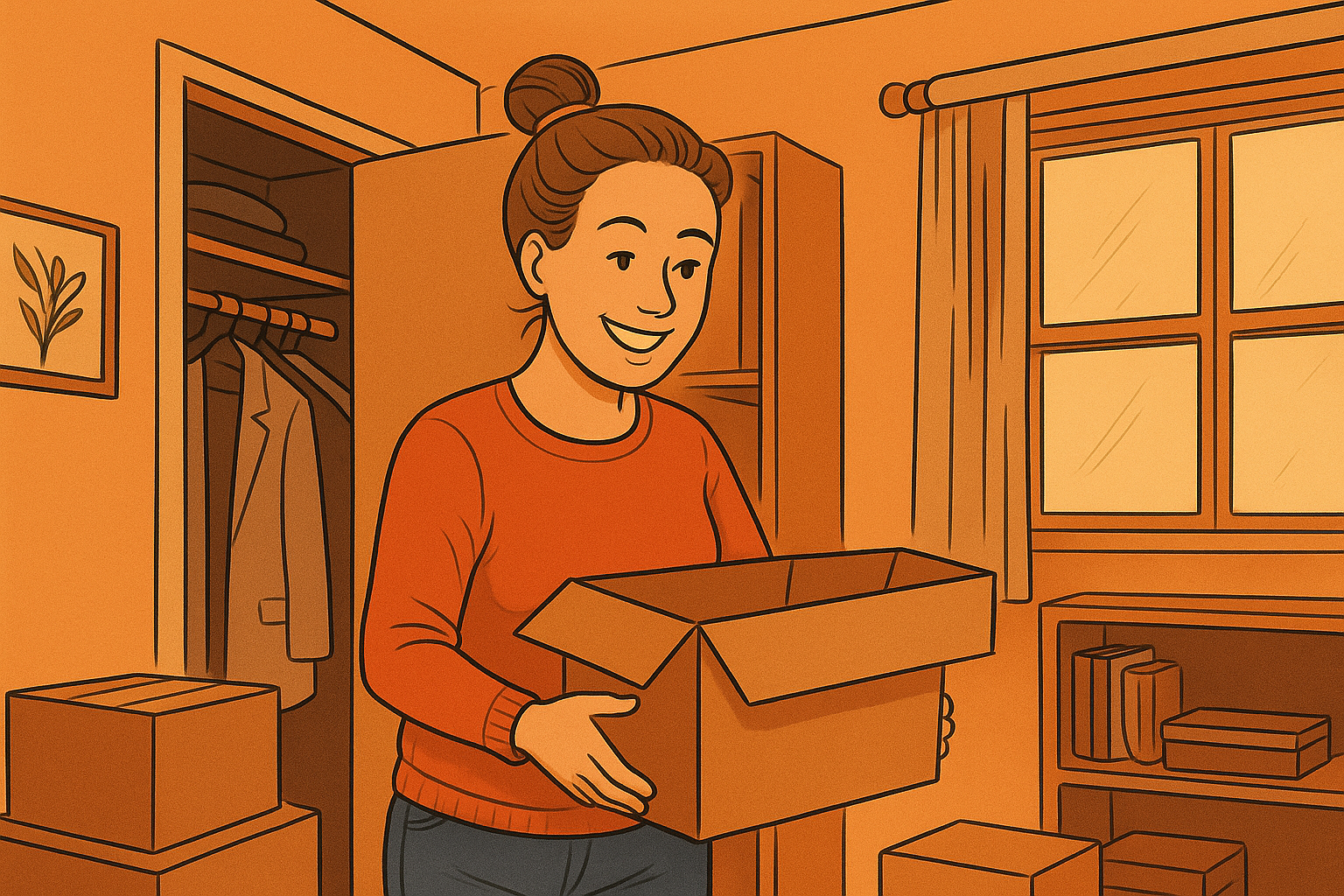
What happens when the cost of a city you love starts to shape the way you live, dream, and even think about space itself?
When I was growing up, my parents bought a five-bedroom house in their early thirties. By the time I was five, I had my own room, a backyard, and space to spread out. My siblings and I each had our own corners of the house, and there always seemed to be room for storage, hobbies, and the chaos of everyday life. That kind of space now feels like a fantasy.
At fifty, I finally have a second bedroom. For fifteen years, my husband, daughter and I lived in a one-bedroom apartment in Vancouver. I turned the living room into her bedroom with curtains and creativity. We made it work because that’s what you do when the housing market leaves you with little choice. When we finally moved into a two-bedroom condo, it felt like a milestone, almost a reward for endurance. But it also carried a strange sense of sadness: I had to wait until midlife to have what my parents had decades earlier.
The emotional toll of Vancouver’s housing market is something I don’t think people talk about enough. It’s not just financial strain, it’s the constant psychological weight of living small. Every possession demands justification. Every purchase raises a question: Where will it fit? I’m always decluttering, rearranging, shuffling items around like pieces on a board that’s too small for the game.
Even my dreams reflect it. I sometimes have what I call “space anxiety dreams”which are nightmares where I’m frantically trying to find more room, or suddenly discover a hidden door leading to an extra room I never knew existed. Dana K. White, the decluttering guru, once mentioned she had similar dreams when she lived in tight quarters and felt overwhelmed by stuff. It’s such a clear metaphor for scarcity, the mind’s way of coping with a life that feels compressed.
Minimalism gets marketed as a lifestyle choice, but for many of us, it’s just survival. When your closets are tiny, when you have no storage locker, when every square foot costs a small fortune, you have to live minimally. You become ruthless about what stays and what goes. It’s exhausting, even when you know you’re lucky to have a home at all.
And that’s the paradox: I know this frustration sits firmly within the realm of North American middle-class privilege. I have a roof over my head, heat in winter, and safety. But financial happiness is relative. I can acknowledge that privilege and still feel the quiet grief of knowing how much harder it’s become to achieve what used to be ordinary.
I look at my parents’ generation and think, They had more space for less money. I pay so much more, for so much less. I’m not house poor, but I’m always careful. There’s no room for spontaneous spending or big luxuries. Just steady caution.
But maybe part of growing older is realizing that the world has changed and that my expectations haven’t always caught up. It isn’t the 1950s anymore. I don’t have the life my grandmother had, so I don’t have her house. The math of modern life is different. The economy, the population, the very idea of what a home looks like, it’s all evolved. Maybe learning to live in contemporary times means accepting that “enough” looks different now.
It kind of feels like giving up but I don't think I can because clearly my subconscious is not okay with how I'm living. I'm dreaming about closets! Closets shouldn't be a luxury item! I'm not alone. I know I'm not. I'm constantly in a spin realizing that my North American middle class bias to space is beyond what so many people around the world can't even contemplate but at the same time, since I'm here, these are my friends and neighbours, this is the water I swim in. Your surroundings determine your relative happiness. This is why the neighbours of lottery winners go bankrupt, they try to keep up with outrageous fortune of a windfall. This is why the saying "keeping up with the jones" is around.
Maybe I need to move somewhere else so that I won't feel like this. So many people pick up and go to other countries where their earned income from a Western capitalist nation goes further but then that feels exploitative. I keep looking at houses in the suburbs, they are cheaper, bigger. It's like watching this TV show that shows British people buying chateaus in France for the same price as their London flat. But then you have to live out there... in the middle of nowhere. That feels like abandoning something too: community, roots, the life I have built. The trade-offs are real. Maybe I just need to declutter one more box and that will make all the difference (I lie to myself so I can get some sleep).
And in the end, the closets and space I dream about aren’t just furniture and square footage, they’re proof that living in this city costs more than money.

No comments:
Post a Comment